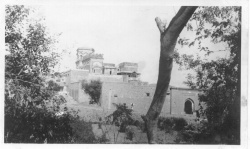| The Families In British India Society (FIBIS) is a self-help organisation devoted to members researching their British India family history and the background against which their ancestors led their lives in India under British rule. Let FIBIS help you break down those brick walls in your research |
Wah: Difference between revisions
Jump to navigation
Jump to search
further edits and additions |
|||
| Line 20: | Line 20: | ||
* [http://simple.wikipedia.org/wiki/Wah Old Wah village on Simple Wikipedia] | * [http://simple.wikipedia.org/wiki/Wah Old Wah village on Simple Wikipedia] | ||
* [http://en.wikipedia.org/wiki/Wah Wah Cantonment and Township on Wikipedia] | * [http://en.wikipedia.org/wiki/Wah Wah Cantonment and Township on Wikipedia] | ||
* [http://members.iinet.net.au/~royalty/ips/w/wah.html Detailed geneaological table of the Wah family] | |||
[[Category: Locations]] | [[Category: Locations]] | ||
[[Category:Cities, towns and villages in Bengal Presidency]] | [[Category:Cities, towns and villages in Bengal Presidency]] | ||
Latest revision as of 04:45, 5 December 2012
| Wah | |
|---|---|

| |
| Presidency: Bengal | |
| Coordinates: | |
| Altitude: | |
| Present Day Details | |
| Place Name: | Wah |
| State/Province: | Punjab |
| Country: | Pakistan |
| Transport links | |
Wah was a village and seat of a feudal Jagir estate in the northern Punjab's Attock District. It was the ancestral seat of the famous Hayat family of the Khattar tribe, which produced Nawab Muhammad Hayat Khan (of John Nicholson fame), Sir Sikandar Hayat Khan and Sir Liaquat Hayat Khan.
Wah village is located on the Grand Trunk Road. It also had the ruins of a old Mughal pleasure gardens and a baradari pavilion, dating to the time of the Emperor Shah Jehan (r:1628-1658).
The old, original village is not to be confused with the 'Wah Cantonment' and Ordnance Factory, which were built nearby much later.